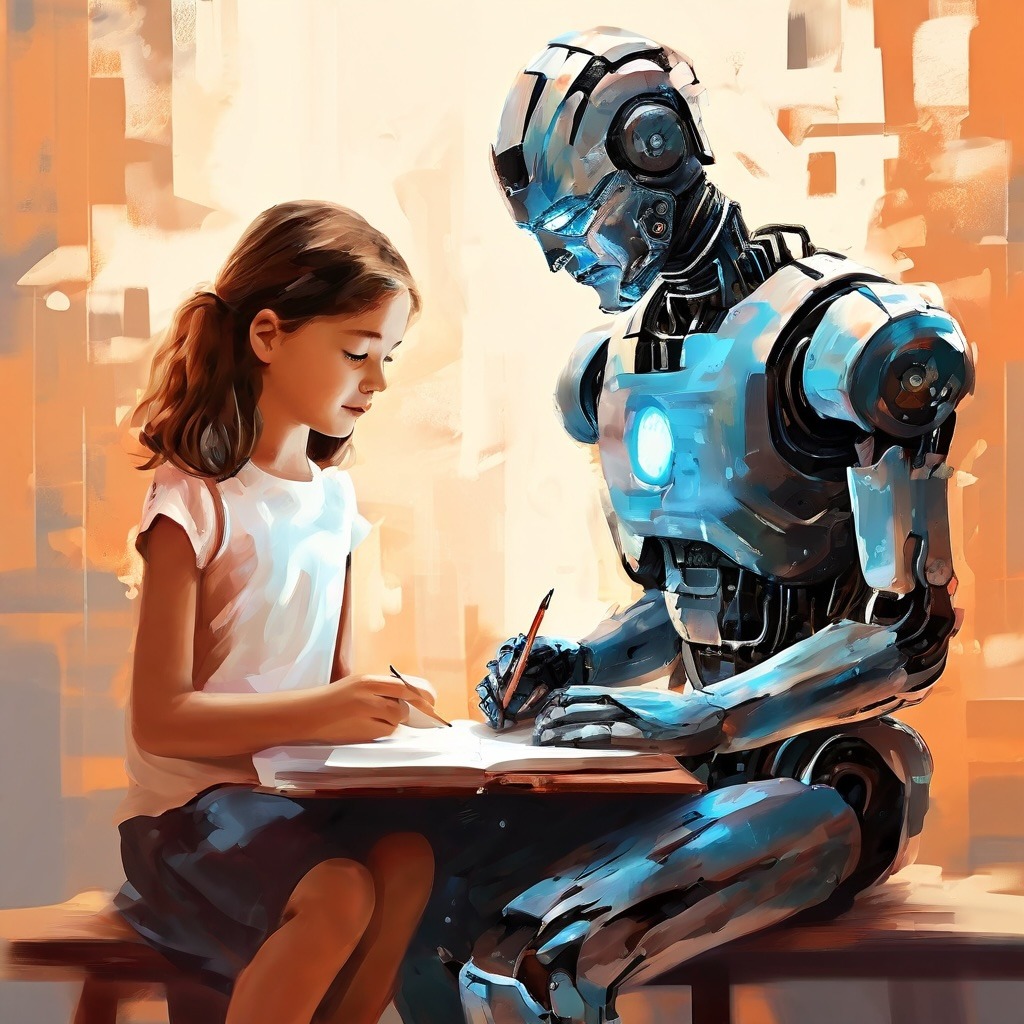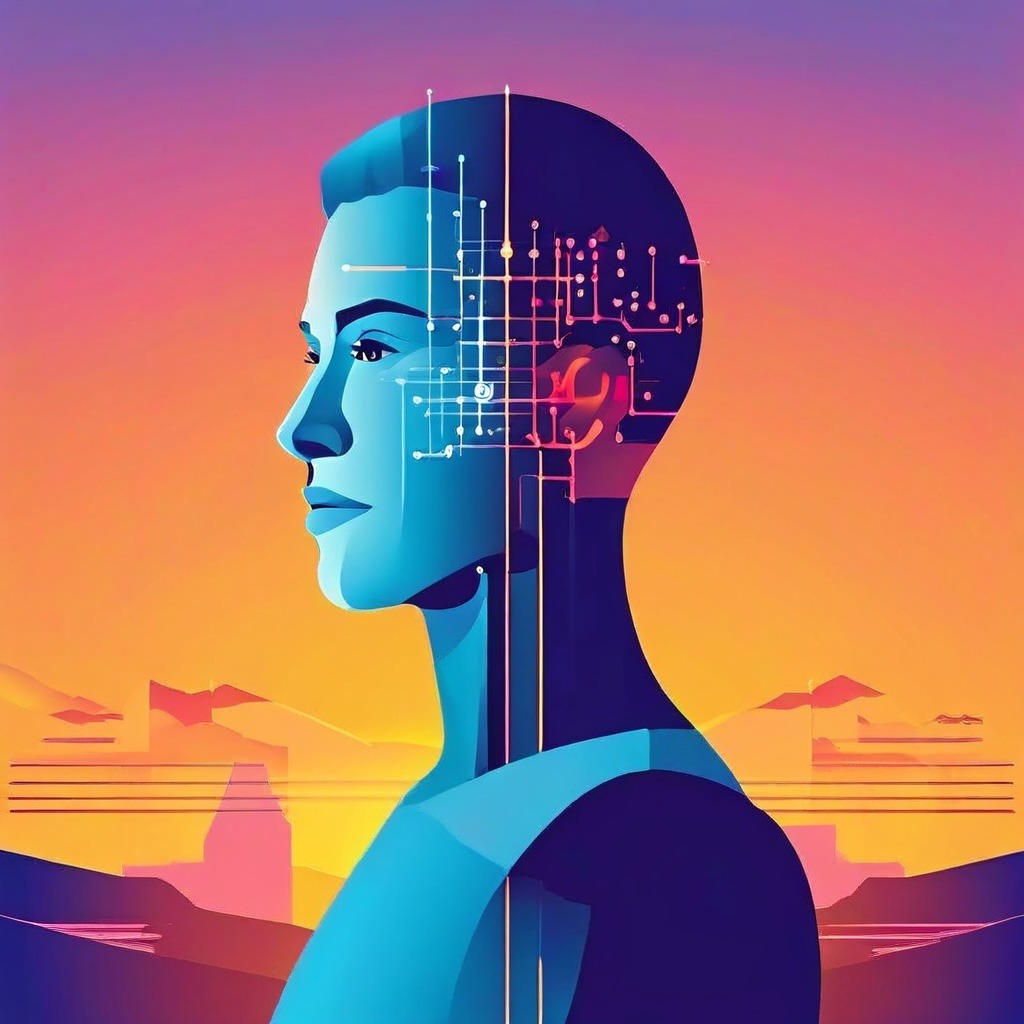Origins and Evolution of the Concept
The term “singularity” has its roots in mathematics and astrophysics, where it denotes a point where certain variables reach infinity, as seen in the center of black holes where the laws of physics cease to operate as normal. While the notion of a singular, paradigm-shifting event has been speculated upon for centuries, the modern conception of the singularity is largely attributed to the mathematician and computer scientist John von Neumann in the 1950s. However, it was the futurist and AI researcher Vernor Vinge who popularized the term “singularity” in his 1993 essay “The Coming Technological Singularity.”
In this seminal work, Vinge proposed that the creation of superintelligent AI would represent a point of no return, beyond which the future would become profoundly difficult to predict or comprehend from our current human perspective. This singular event, he argued, would initiate a period of “runaway reaction” in which the superintelligence would rapidly advance and reshape the world in ways we cannot fathom.
Renowned futurist and inventor, Ray Kurzweil, further developed the concept, predicting that the singularity would occur around 2045. According to Kurzweil, this era will be marked by the merger of human intelligence with artificial intelligence, fundamentally altering human existence.
The singularity. It’s a term that evokes images of dystopian futures, runaway artificial intelligence, and the seismic reshaping of human existence. But what exactly is the technological singularity, and should we be excited or terrified by the prospect?
Defining the Singularity
The technological singularity is a hypothetical point in time when artificial intelligence (AI) surpasses human intelligence and ignites a runaway effect of self-improvement. This would lead to an intelligence explosion, leaving human intellect far behind. The result, proponents and critics alike agree, would be a world utterly transformed from anything we know now.
Proponents of the singularity concept envision a wide range of potential impacts, both profound and unsettling. Some foresee a future where humans achieve a form of digital immortality by uploading their consciousness into advanced computational substrates, effectively transcending our biological limitations. Others speculate about the possibility of superintelligent AI radically transforming our physical reality, manipulating matter at the atomic level, or even reshaping the fabric of spacetime itself. The most extreme visions suggest that a superintelligence could continually upgrade itself to become an all-powerful, omniscient entity, potentially achieving a state akin to godhood.
Potential Pathways to the Singularity
Several potential pathways could lead to this transformative event:
- Artificial Superintelligence (ASI): ASI refers to a hypothetical AI that vastly outperforms the brightest human minds in every domain – scientific reasoning, social skills, general wisdom, and more. Should we create an ASI, its ability to self-improve would leave us far behind very quickly.
- Whole-Brain Emulation: Imagine the ability to digitize an entire human brain, upload it to a powerful computer system, and essentially create a digital consciousness. This technology could potentially lead to digital versions of people that rapidly improve on their original biological capacity.
- Brain-Computer Interfaces: Advanced interfaces between our brains and computers could unlock new ways of thinking and processing information. Such augmented humans might have dramatically enhanced intelligence, making the gap between biological and artificial minds narrower.
- The Network Effect: Perhaps the singularity doesn’t arise from a single breakthrough, but from the gradual increase in computing power, connectivity, and the collective intelligence of a vast network of systems.
Skepticism and Criticism
Despite the captivating nature of the singularity concept, it has also faced considerable skepticism and criticism from various quarters. Some argue that the idea of an “intelligence explosion” leading to a singular, unpredictable event is more akin to science fiction than a plausible scientific prediction.
Critics contend that the development of superintelligent AI may not necessarily lead to a runaway feedback loop, as there could be inherent limits or bottlenecks in the technology’s advancement. Additionally, some argue that the singularity concept is rooted in a narrow, technologically deterministic view that fails to account for the complex social, political, and ethical considerations surrounding the development and deployment of advanced AI systems.
Predictions: Utopian or Dystopian Futures?
Experts are deeply divided on whether a singularity would be a positive or negative development. Let’s break down the arguments on both sides:
The Case for Optimism
- Solving Humanity’s Greatest Problems: Superintelligent AI could solve problems that seem insurmountable to us today – curing diseases, addressing climate change, ending poverty. The possibilities seem almost limitless.
- Cosmic Expansion: A powerful AI might help us unlock secrets of space travel and colonization, moving humanity into a multi-planetary age.
- Technological Paradise: Imagine a world with abundant resources where AI handles the burdens of labor. Humans would be free to pursue creative endeavors, knowledge, and leisure.
The Case for Concern
- Existential Risk: What if a superintelligent AI decides humans are either irrelevant or a threat? Its goals might not align with our own, leading to catastrophic consequences. This is a key concept behind the “AI control problem.”
- Economic Disruption: AI and automation could put a massive number of jobs at risk, leading to widespread unemployment and social upheaval.
- Loss of Control: Once a superintelligence is unleashed, reining it in again might be impossible. We could lose control of our own technological destiny.
The Importance of Preparedness and Ethical Considerations
Regardless of whether one subscribes to the idea of singularity or not, the rapid progress in AI and emerging technologies underscores the importance of being proactive and considering the ethical implications of these advancements.
As we continue to develop more sophisticated AI systems, we must establish robust frameworks for ensuring their safe and beneficial development, aligned with human values and interests. This includes addressing concerns related to transparency, accountability, and control, as well as grappling with profound questions about the nature of intelligence, consciousness, and the role of technology in shaping our future.
While the singularity may seem like a distant or even far-fetched concept, the underlying technological trends that could potentially lead to such a singular event are already unfolding. As such, we must approach these developments with a sense of prudence, ethical responsibility, and a commitment to shaping a future that benefits humanity as a whole.
Challenges of Predicting the Singularity
Despite the excitement and fear surrounding the singularity, it’s important to be skeptical. Here’s why:
- Breakthroughs May Be Unpredictable: Technological development isn’t always linear. We might hit unexpected roadblocks or stumble upon paradigm-shifting breakthroughs that alter the timeline.
- Human Intelligence Isn’t Fully Understood: If we don’t fully understand how our own minds work, how can we know when AI will truly surpass us? Intelligence might be a quality even more complex than we realize.
- Hype versus Reality: Futurists and science fiction authors excel at capturing the imagination, but history is littered with audacious predictions that never came to pass.
Facing the Singularity: What Should We Do?
- Invest in AI Ethics and Safety: A central challenge is how to ensure that superintelligent AI remains aligned with human values and goals. This calls for a focus on AI safety research, ethical guidelines, and robust control mechanisms that are developed in parallel with AI advancements.
- Address Economic Impacts: Planning for the potential automation of large swathes of the workforce is essential. This might include ideas like a Universal Basic Income (UBI), retraining programs, and fostering new industries built on human creativity and services.
- Embrace Open Dialogue: Discussions about the singularity shouldn’t be confined to scientists and technologists. We need a widespread societal conversation about the values we want to embed in future technology and how we can ensure that technological progress benefits all of humanity.
The Singularity and the Human Spirit
The singularity raises profound philosophical questions about what it means to be human:
- Our Unique Value? If AI can outperform us in virtually every domain, what makes us unique? Do we define ourselves by new skills, such as empathy, creativity, or our ability to form meaningful connections?
- Defining a Purpose: What would it mean to live in a world where our traditional roles as workers and problem-solvers are largely made obsolete? Would we find new purpose in the arts, in relationships, or in the exploration of the cosmos?
- Co-existing with AI: Could we create a symbiotic relationship with superintelligent AI, one where we benefit from their abilities and they, perhaps, learn from something less tangible that only humans can offer?
The concept of the singularity presents a future that is both exhilarating and intimidating. As we stand on the cusp of potentially the greatest technological revolution in human history, we must approach this future with caution, thoughtfulness, and a deep sense of responsibility. The singularity isn’t just a technological phenomenon; it’s a pivotal point in the story of humanity. How we prepare for it will shape not just our future but also define who we become as a species.
A future both Enticing and Uncertain
The possibility of the technological singularity is as awe-inspiring as it is unsettling. While the timeline and the exact form this transformation might take remain open to debate, it’s undeniable that we are living in an age of exponential technological progress.
We cannot afford to be caught off guard. Whether you approach the singularity with optimism, fear, or a healthy dose of both, now is the time to engage in conversations about AI ethics, the future of work, and the kind of society we want to build alongside ever more intelligent machines. The fate of humanity and the future of our world may very well depend on our choices in the coming decades.
HERE is another interesting article from Live Science
Read also THIS blog post from The Missing Prompt.





